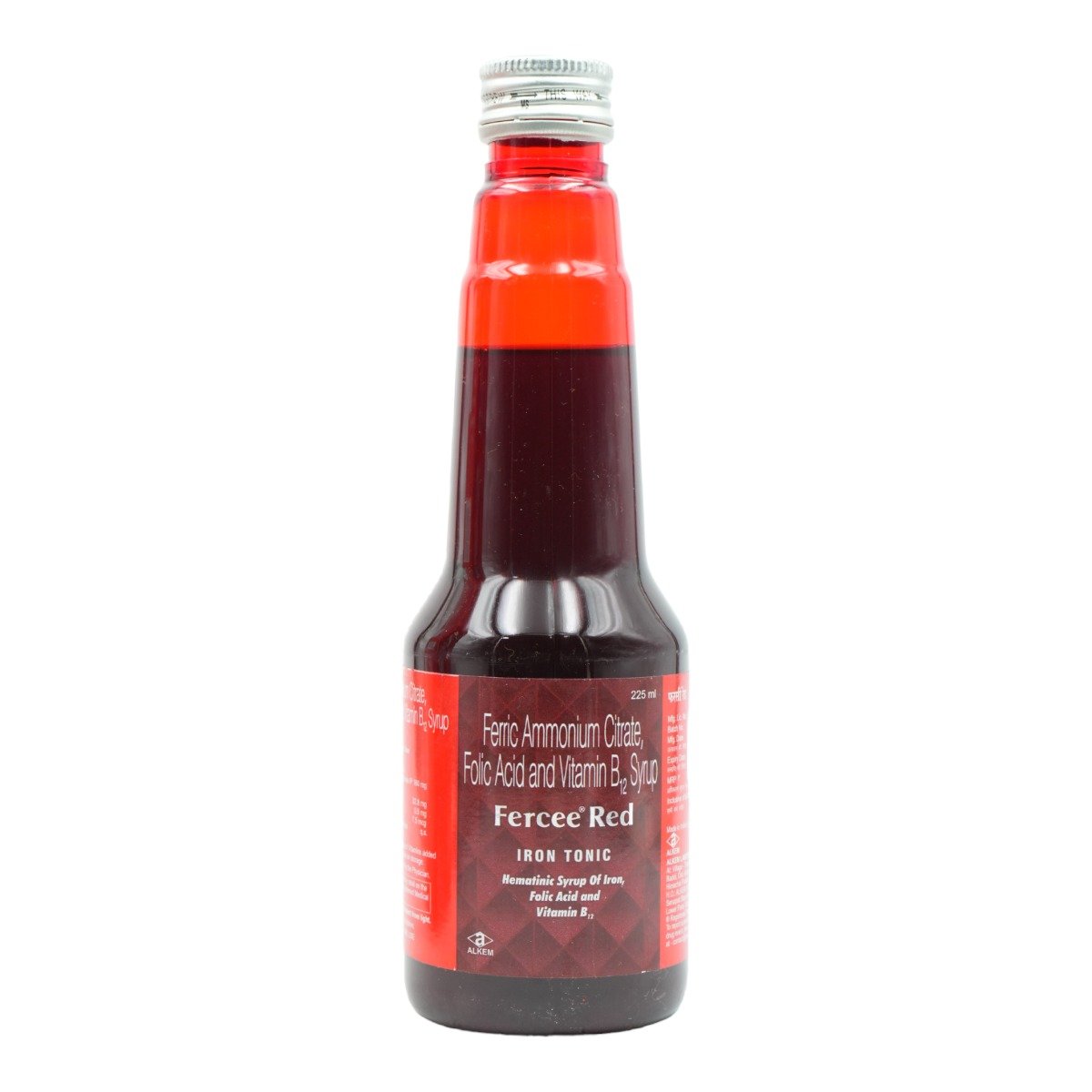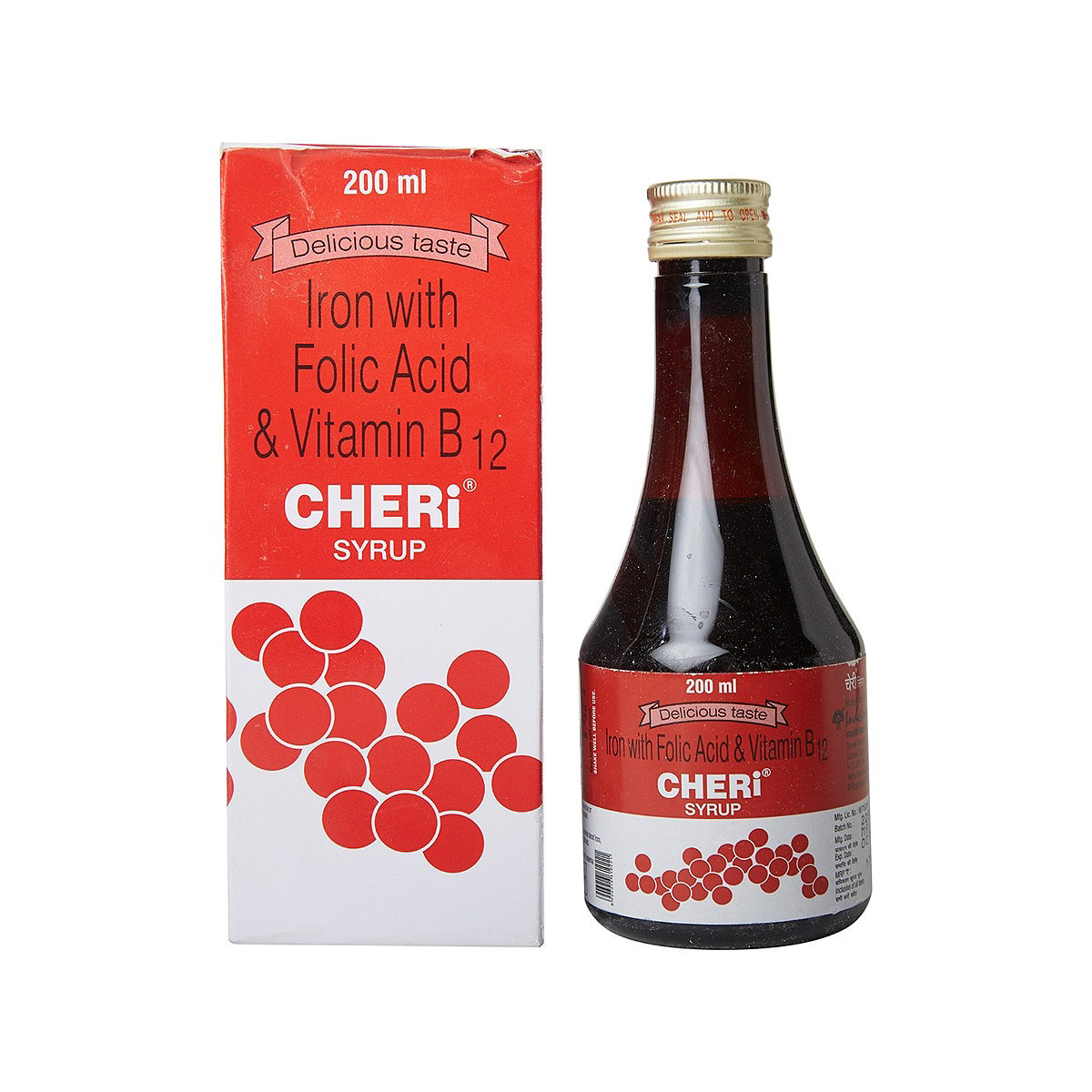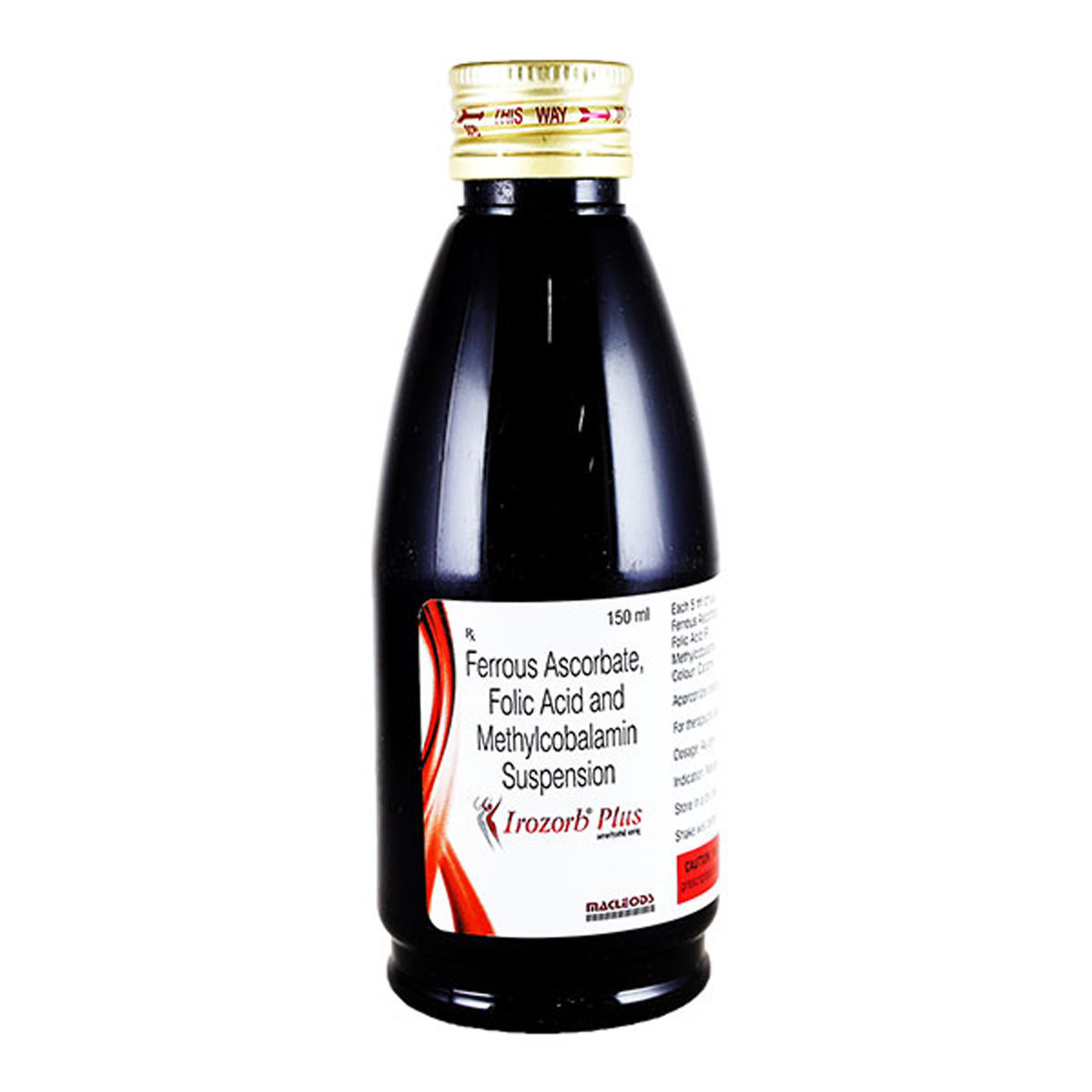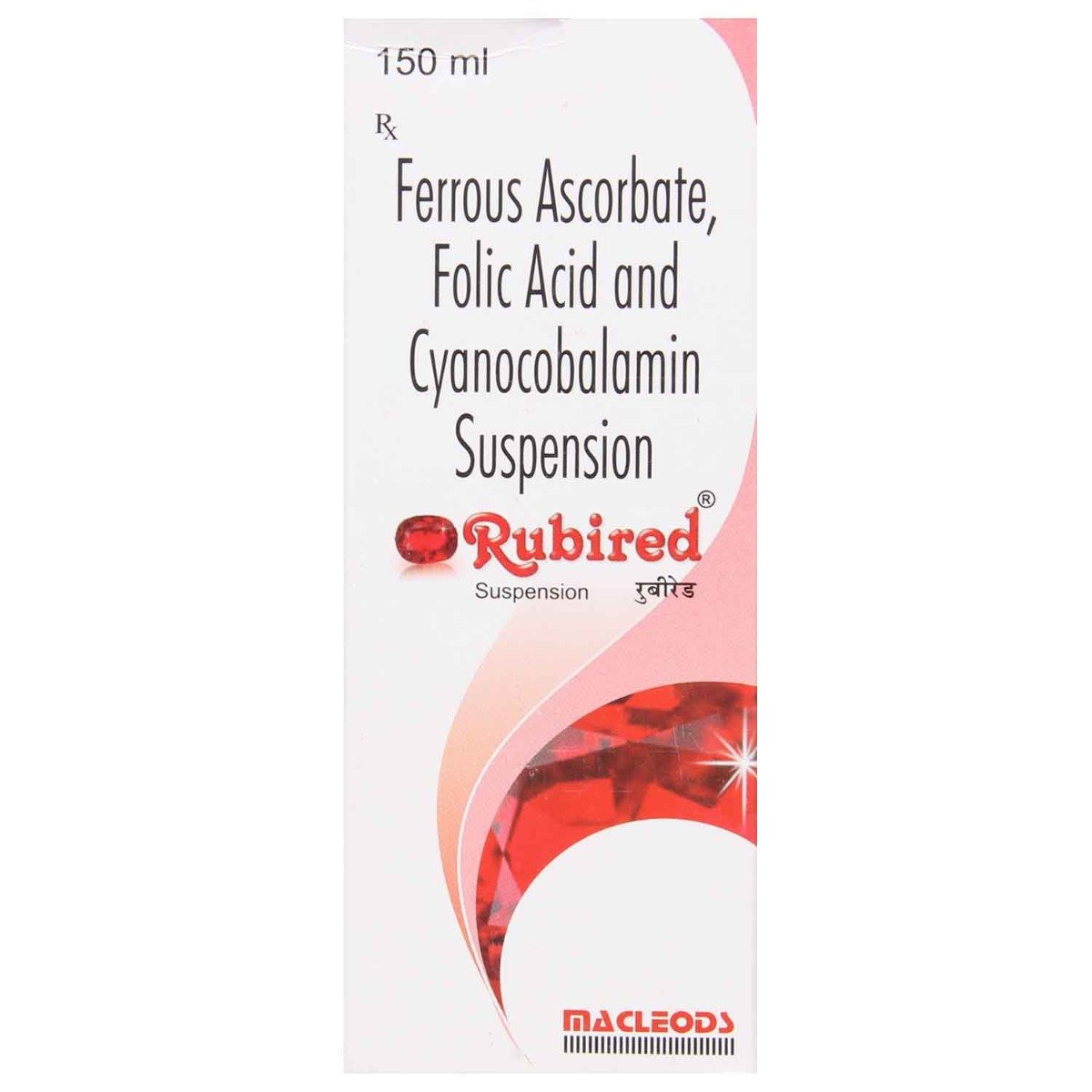Iron+folic Acid+cyanocobalamin
About Iron+folic Acid+cyanocobalamin
Iron+folic Acid+cyanocobalamin belongs to a class of 'nutritional supplements,' primarily used to treat iron deficiency anaemia and nutritional deficiencies. Iron deficiency anaemia is a condition in which the body does not have enough red blood cells due to low iron levels. Nutritional deficiency occurs when the body is unable to absorb or get enough nutrients from food.
Iron+folic Acid+cyanocobalamin contains Iron, Folic acid, and Cyanocobalamin. Iron is an essential mineral that aids in producing red blood cells and the transportation of oxygen to body tissues. Folic acid helps in forming red blood cells and prevents and treats folate deficiency (low blood levels of folate). Cyanocobalamin is a form of vitamin B12 that helps properly function the brain and nerves and produces red blood cells.
Do not take Iron+folic Acid+cyanocobalamin if you're allergic to any ingredient in it. In some cases, Iron+folic Acid+cyanocobalamin may cause side effects like nausea, diarrhoea, constipation, and stomach upset. These side effects do not require medical attention and gradually resolve over time. However, if these side effects persist longer, please consult your doctor.
Brief your medical history to the doctor if you have any heart/kidney/liver diseases, iron overload disorders like hemochromatosis, hemosiderosis, and intestinal problems (ulcer, colitis) before starting Iron+folic Acid+cyanocobalamin. It is essential to seek medical advice before starting to Iron+folic Acid+cyanocobalamin if you are pregnant or breastfeeding. Drinking alcohol may affect iron absorption; therefore, it is advised to avoid/limit alcohol consumption. Iron+folic Acid+cyanocobalamin should be given to children only when advised by the doctor.
Uses of Iron+folic Acid+cyanocobalamin
Medicinal Benefits
Iron+folic Acid+cyanocobalamin contains Iron, Folic acid, and Cyanocobalamin. Iron is an essential body mineral required by red blood cells to carry oxygen to other body cells and tissues. By combining with a protein in the blood called haemoglobin, Iron helps carry adequate oxygen to various body parts. Folic acid helps in forming red blood cells. It prevents and treats anaemia and folate deficiency. Cyanocobalamin helps in the proper functioning of the brain and nerves and the production of red blood cells. Thereby, Iron+folic Acid+cyanocobalamin treats nutritional deficiencies and anaemia.
Directions for Use
Storage
Side Effects of Iron+folic Acid+cyanocobalamin
- Bloating
- Loss Of Appetite
- Dry Mouth
- Diarrhoea
- Constipation
- Black stool
Drug Warnings
Do not take Iron+folic Acid+cyanocobalamin if you are allergic to Iron+folic Acid+cyanocobalamin, iron, folic acid, or any of the ingredients of Iron+folic Acid+cyanocobalamin. Tell your doctor about all the medications you use. This includes vitamins, minerals, herbal products, and drugs advised by other doctors. Do not start using a new medication without telling your doctor. Iron+folic Acid+cyanocobalamin is generally given at least four weeks before pregnancy and is continued up to 3 months of pregnancy. Also, if giving Iron+folic Acid+cyanocobalamin to a child, a child specialist's dose will be decided as an overdose of Iron+folic Acid+cyanocobalamin in children can lead to deadly poisoning. If you have got any part of the stomach removed, please inform your doctor before taking Iron+folic Acid+cyanocobalamin.
Drug Interactions
Drug-Drug Interactions: Iron+folic Acid+cyanocobalamin is known to interact with medicines used to treat rheumatoid arthritis (penicillamine, sulfasalazine), blood cholesterol (cholestyramine), Parkinson's disease (levodopa, carbidopa), thyroid disease (thyroxine), bone disease (bisphosphonates), certain cancers (aminopterin, methotrexate), malaria (pyrimethamine), Wilson's disease (trientine), antibiotics (cotrimoxazole, chloramphenicol, tetracyclines).
Drug-Food Interactions: Iron+folic Acid+cyanocobalamin should not be taken along with alcohol, dairy products, and eggs as it might affect Iron+folic Acid+cyanocobalamin absorption in the body.
Drug-Disease Interactions: Iron+folic Acid+cyanocobalamin is known to interact if you have or have ever had a stomach ulcer, vitamin B12 deficiency, any blood disorder, repeated blood transfusions, ulcerative colitis (inflammation of the colon), anaemia, or folate tumour.
Drug-Drug Interactions Checker List:
Safety Advice

Alcohol
unsafeDrinking alcohol may affect iron absorption; therefore, it is advised to consult your doctor if you have any concerns.

Pregnancy
cautionIron+folic Acid+cyanocobalamin is safe if advised by a doctor but always take it in the dose and duration suggested by a doctor. Iron+folic Acid+cyanocobalamin is generally given at least four weeks before pregnancy and is continued up to 3 months of pregnancy.

Breast Feeding
cautionIron in Iron+folic Acid+cyanocobalamin can pass into breast milk when used by a breastfeeding mother. Please consult your doctor before taking Iron+folic Acid+cyanocobalamin if you are a nursing mother.

Driving
not applicableIron+folic Acid+cyanocobalamin usually does not interfere with your driving ability.

Liver
cautionLet your doctor know if you have any history of liver diseases before taking Iron+folic Acid+cyanocobalamin. Your doctor will weigh the benefits and potential risks before recommending Iron+folic Acid+cyanocobalamin.

Kidney
cautionIt is advised to seek a doctor's advice before starting Iron+folic Acid+cyanocobalamin if you have kidney disease. Your doctor will weigh the benefits and potential risks before recommending Iron+folic Acid+cyanocobalamin.

Children
cautionIron+folic Acid+cyanocobalamin should be used in children only when recommended by a doctor. The doctor will advise the dosage of Iron+folic Acid+cyanocobalamin based on the child's age and weight.
Habit Forming
Diet & Lifestyle Advise
- Include red meat, pork, poultry, and seafood in your diet.
- Iron sources like kidney beans, black beans, spinach, raisins, apricots, and lentils will help improve your iron deficiency when taken along with Iron+folic Acid+cyanocobalamin.
- Also, include iron-fortified cereals, bread, and pasta timely in your regular food intake.
- Vitamin C foods like orange juice, broccoli, strawberries, melons, and bell peppers enhance iron absorption into the body.
- You can also try iron gummies if you have sweet cravings.
- Recent trends, like using cast iron utensils for cooking, can also improve your iron levels.
Special Advise
Patients Concern
Disease/Condition Glossary
Nutritional deficiency: A nutritional deficiency occurs when the body does not absorb or get enough nutrients from food. This condition occurs when a person's nutrient intake is lesser than the body's recommended requirement. It can lead to various health problems like a weak immune system, skin problems, digestion problems, defective bone growth, and neurological diseases.
Iron deficiency anaemia: Iron deficiency anaemia is a condition caused due to low iron levels, in which the body does not have enough red blood cells to carry adequate oxygen to various body tissues. If the body has too little iron, it cannot make enough haemoglobin. Haemoglobin is the main protein in the red blood cells, responsible for carrying oxygen throughout the body. Symptoms of anaemia include fatigue, shortness of breath, light-headedness, dizziness, fast heartbeat, brittle nails, and pale skin.
FAQs
Some foods like whole-grain slices of bread, cereal, eggs, dairy products, coffee, and tea may make Iron+folic Acid+cyanocobalamin not work well. Thus it is advised to avoid these foods.
Folate and vitamin B12 deficiencies usually happen when a person does not take proper diet and vitamin B12 deficiency happen in the elderly, due to poor absorption. Folate is present in more concentration in leafy green vegetables, legumes and some fruits, so consume such products.
Iron is an important mineral in the body required by red blood cells to carry oxygen to other body cells and tissues. By combining with a protein called hemoglobin, it helps in attracting oxygen in the lungs. Factors including pregnancy, blood loss, or low iron in the diet can reduce the iron supply leading to anemia.
Children below 12 years of age, should only use this medicine after consulting with a doctor as the doctor will suggest Iron+folic Acid+cyanocobalamin after checking the child's age or weight of a child.
Iron+folic Acid+cyanocobalamin may cause constipation, however, not everyone experiences it. Eating more high fiber foods like vegetables, fresh fruit, and cereals, and drinking plenty of water can help in relieving symptoms.
Some foods can affect the absorption of Iron+folic Acid+cyanocobalamin that includes tea, coffee, milk dairy products, eggs, and soybean products, so avoid taking these foods within or after 2 hours of taking this medicine.
Iron+folic Acid+cyanocobalamin is a nutritional supplement that consists of Elemental Iron, Folic acid, and Cyanocobalamin. It works by boosting the body's production of red blood cells (RBC). It also helps normalise the low vitamin levels in the body, thus treating nutritional deficiencies and iron deficiency anaemia.
Additional folic acid requirements are required in the pregnancy. Iron+folic Acid+cyanocobalamin is recommended in pregnant women who want to conceive as folate utilization increases during pregnancy. It is generally given at least four weeks before pregnancy and is continued up to 3 months of pregnancy.
It is recommended not to take Iron+folic Acid+cyanocobalamin along with tea, coffee, or milk, and even eggs as the boy might absorb less iron supplements if you take them together, which may reduce the effectiveness of Iron+folic Acid+cyanocobalamin.
Iron+folic Acid+cyanocobalamin is best absorbed if taken on an empty stomach. But in some patients, it causes an upset stomach if taken empty stomach. So, please take it as suggested by your doctor if you have an upset stomach problem.
If you are pregnant, it is necessary to maintain the right level of folic acid to reduce the risk of neural tube defects as this is from baby's central nervous system develops. So, to avoid any defect, it is necessary to take it for the first three months as the neural tube is formed completely by this time.
Daily oral iron and folic acid supplementation with 30-60 mg of elemental iron and 400 µg (0.4 mg) folic acid is recommended for pregnant women to prevent puerperal sepsis, maternal anaemia, low birth weight, and preterm birth. Consult your doctor for further advice.









